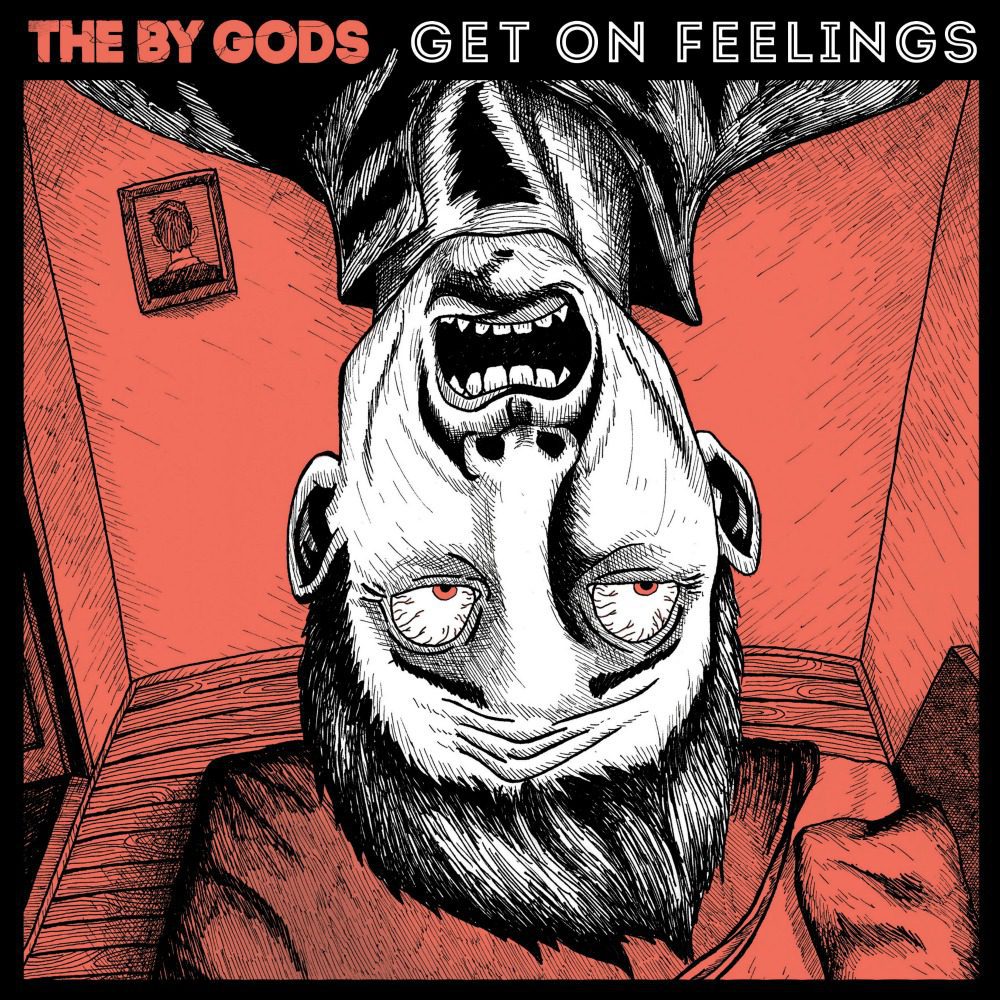PREMIERE: CJ Temple Reveals Her Truest Self on Debut LP Smoke


CJ Temple has the magic touch when it comes to social media. While some artists and influencers post sexy, glossily filtered selfies or try to nut out the right hashtags to draw a mass following, Temple did something else. Since January 2020 she’s regaled TikTok viewers with her quirky skill for imitating the old-Hollywood movie accent of the 1930s and ’40s. Within a year, she’d drawn over a million followers (her character Millie rehearsing for the funeral party is a gas, recalling Hedy Lamarr). The platform had boosted her artistic confidence enough that she began sharing music too – and with barely restrained surprise and delight, eventually announced her debut album Smoke. It’s officially out on all streaming platforms January 28, but it’s premiering on Audiofemme today in its entirety.
The album’s evening mood is all moonlight, last vestiges of sunset purples and oranges giving way to a smoky grey sky, stars sprinkled above silent trees. It’s the magic-hour soundtrack to peeling off your social façade after being who you are in the world and becoming effortlessly alone in your skin.
Its title refers to the time of “quiet, where you can breathe again,” Temple says. The strings are sadly romantic, the patter of drums like a steady beat of rain against the window pane, and her sultry, lovely voice is intimate and confessional. She has read the room, too. In the wake of Taylor Swift’s versions of her own original songs, Temple’s pop-folk, vaguely Baroque-rock take on ballads is in the same vein, sonically. This is no critique – the opposite, in fact. Temple emerges with a richly-rendered debut, thanks in part to hard work, and in part to serendipity.
“Every single one of the songs had a demo basically, which is the song that I wrote however many years ago – starting from 16 years ago. I wrote from then up until my mid-20s just using a guitar or a keyboard that I didn’t know how to play because I could never sit down and learn instruments,” Temple tells Audiofemme. “I’d play on a guitar and a piano, recording my harmonies. When I got to my mid-20s my dad got me this music software and I started making demos with my computer instead of instruments.”
The Richmond, Virginia born-and-based Temple had – until 2019 – sailed on a path of circumstances and a deep-rooted fear of failure. “I didn’t go to school for anything practical because I always wanted to do something in performance art,” she explains. “I did the arts my whole life and I went to college for theatre. When I left school, I left very disheartened by the industry and the business itself and what was presented to me as normal.”
Thoroughly schooled in the inevitability of constant rejection and brutal competition, opportunities in the lucrative legal administration field were enough to dissuade her from even entering the performance industry – at least, for a little while. “I was like, okay, I’m settled in this job where I’m making more money than I thought I would, I was living alone in this apartment in the city, I was self-sufficient, independent and I thought okay, I can do this for the rest of my life,” she says, then chuckles, “Turns out I couldn’t!”
Seeking an outlet for the self-expression she’d been bottling up, she began posting on TikTok. It was the accent – which she’d perfected during a college performance of Psycho Beach Party under the director’s guidance to sound like Joan Crawford – that won her attention at first, and only after she’d hit one million followers did she begin to post her own music seven months later. That attracted the attention of Erin Anderson at Olivia Management, who asked Temple if music was something she was interested in pursuing.
“I told her yes, absolutely it is,” Temple says. Having chosen to post her original music and be her wild, funny, silly self on social media had sent her hurtling out into the great, wonderful unknown. “It was a culmination of people’s responses to my singing, a couple of originals that I’d posted, and then [Anderson] reaching out to me in that way. It gave me a little bit of courage that maybe people would like this. I’d scared myself out of pursuing it because I kept saying, ‘This is bad, nobody’s gonna like this terrible music, it sucks…’ all the things we tell ourselves… I realized that I had an opportunity and I didn’t think that if I passed up this opportunity that I’d be able to have another one. I gathered up as much courage as I could and we launched the Kickstarter in February and the rest is history.”
Ultimately, 836 backers pledged $42,066 toward Temple’s album, just beating the $40,000 goal they’d set. It enabled her to employ Nashville-based producer Josh Kaler; together, they began going through Temple’s demos, expanding some elements and building some anew. By the time she got into the studio in April, Kaler had already started working on a few of the backing tracks for the songs.
“He wanted to get the bones to the eleven songs in the studio in two weeks – which we did. He’s amazing, he did incredible work,” Temple says. “For two weeks, song-by-song, we went through and built them up. He used all kinds of instruments, synths, my voice as an instrument a few times, and the Czech Studio Orchestra did strings on three of my songs, so we had a lot going on, but mostly it was Josh Kaler just working his magic.”
The Czech Studio Orchestra recorded remotely from Prague. Kaler had worked with them in the past and knew that they could bring the dramatic mood Temple’s songs were calling for. Kaler wrote and arranged all the string parts and they were recorded via livestream.
The glock-stop beat on “How It Feels” provides the foundation for Temple’s snaking croon to wrap its taut body around the beat. What sounds like a dancefloor groove hides a malevolent threat in the lyrics: “I’m coming for you, and I won’t stop,” she warns.
“The Game” exposes the all-too-common experience of staying in a relationship for the safety it provides, well after the flame of desire has been snuffed out and everything your partner does is irritating. Temple wrote these songs while she was still uncertain of her own sexual identity. Her self-revelation that she was queer gave her the license and liberation to revisit the songs and imbue them with her understanding that she was not only unfulfilled by particular partners, but by her own stifled desires.
Her album is, in fact, a testament to her newfound ability to admit what she really wants and who she really is. She’d tried to squeeze the infinite circle of her being into a narrow square room. The affirmation of her innate theatricality and magnetism via TikTok was the catalyst for her to revisit the music-making that depression, self-criticism and self-doubt had beaten into submission. “What’s it like to be free? To finally be able to breathe?” she sings in angelic harmony on “Lost.” “I trapped myself inside this prison of lies that I made for myself to keep everyone outside.”
In dropping her armor, baring her open palms and face to the world – even if it’s one million anonymous TikTok users – she has come home to the CJ Temple she’d never been brave enough to see and embrace. It’s a revelation to meet the person you really are, and she clearly takes delight in this new relationship all over Smoke.
The sweet Calypso-breeze sweeping through “Take Me Where You Go” luxuriates in a soft tinkling of piano keys, the lilting, dreamy melody of Temple’s voice providing a soothing lullaby. It’s a nice contrast to the pattering drum and electro-pulse of “Something That Now I Know.” Whereas “The Game” was about staying too long, this track addresses being with the wrong person and notching it up to experience with the beauty of hindsight.
“That song [Take Me Where You Go] was around my Iron & Wine, The Civil Wars era, in my folk-pop era of music. I loved that subtle, simple feeling to music and, being someone who has severe undiagnosed ADHD, I could never stick with one genre to listen to when I was growing up and writing my music. There’s a lot of influences from a lot of different places,” she says.
Temple has averted pastiche, managing instead to infuse the guitar-heavy, harmony-laden moodiness of gothic, Americana, dusty-boots and furrow-browed folk into a fresher, more autumnal mood, lightened by strings, synths and her untroubled voice.
“I never wanted to copy other people or sound like other artists, but it’s the feeling I got from those musicians and the bands that I wanted to emulate,” she explains. “I wanted people to get that feeling that I got when listening to them.”
The dramatic, ’80s-movie style synth drum on “I Am You, You Are Me” is so lushly melancholic, it could be a fully-formed, climactic heartbreak movie in around four minutes.
Temple’s own movie is not a heartbreaker though. She came out in 2020 – to herself, her family and her followers. She also began a relationship with a woman she’s now moving to Michigan with, in a schoolbus she’s converted into a home-on-wheels. TikTok validated her self-expression, and it was also how she met her current partner, but she also watched a large coterie of her followers drop away when she came out.
“Two years ago I started off with a specific type of following and my follower count has not changed and that’s because I’ve lost so many men and gained so many women,” she says, estimating that before she was even out to herself, she had a following of about 95% men; right now, she’s at about 79% women. “I got to the point where I actually didn’t care if people judged me based on [my sexuality]… All the people that wanted to leave, fine, go! If you can’t support all of me, then I don’t need that support, if it’s conditional.”
TikTok one day, music stardom the next. Whatever life has in store for CJ Temple, she deserves it – unconditionally.
Follow CJ Temple on Instagram, TikTok, and Facebook for ongoing updates.








